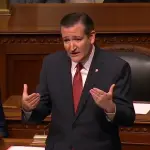The Supreme Court’s recent ruling in Bondi v. Vanderstok may have been lauded as a confirmation of the Biden administration’s ghost gun regulations, but the true implications are far more concerning. While mainstream media may frame this as a setback for Second Amendment rights, conservatives should be focusing on the alarming trend of executive overreach and the expansion of federal power that this case highlights.
The crux of the situation lies not in the battle over gun ownership itself but in the mechanisms that allowed the Biden administration to impose these regulations. The plaintiffs, a coalition of firearm kit manufacturers and advocates for gun rights, argued against the Bureau of Alcohol, Tobacco, Firearms and Explosives (ATF) asserting authority it was never granted by Congress. Historically, the Gun Control Act of 1968 limited the ATF’s scope to fully assembled firearms, not unfinished parts or kits. Yet, in a twist of bureaucratic creativity, the ATF defined some kits as firearms simply due to their potential for conversion. The Supreme Court’s decision to uphold this interpretation signifies not just a blow to gun enthusiasts but an enormous leap in the reach of unelected officials.
What’s particularly insidious about this ruling is the precedent it sets for regulatory power. By redefining the term “firearm” to include kits that can readily be transformed into working guns, the Court has opened up a Pandora’s box of possibilities where every bureaucrat could suddenly have the power to legislate from their desk. This regulatory flexibility was never intended by Congress, and that’s where the danger lurks. The state’s authority is expanding without the required checks and balances normally enforced through legislative action.
Supreme Court Upholds Ghost Gun Rule—but the Real Threat Is Executive Overreachhttps://t.co/han6OA2ncd
— RedState (@RedState) March 27, 2025
Justice Clarence Thomas recognized this threat and rightly issued a dissent, expressing concern that the ruling invites the executive branch to regulate items that Congress did not intend to govern. If courts continue to acquiesce to such redefinitions, the implications could reach far beyond the realm of ghost guns. For instance, it’s not hard to imagine a future where parts traditionally considered benign are labeled as machine guns under absurd interpretations of existing statutes. Such outcomes hold dire consequences for law-abiding citizens, reinforcing the notion that the rights of the individual are under siege.
This case should serve as a wake-up call for conservatives who care about the principles of limited government. The true enemy here is not merely a misguided policy but rather an entrenched administrative state that operates outside the scope of the elected officials who should be crafting our laws. Whether it’s through environmental regulations from the EPA or health mandates from OSHA, agencies are acting like autocratic lawmakers—emasculating the legislative process through executive action.
The Bondi v. Vanderstok ruling doesn’t signify an end to the gun rights debate, but rather emphasizes the critical need for conservatives to engage vigorously with the workings of the administrative state. The risk lies in allowing an increasingly centralized power to erode the freedoms enshrined in the Constitution. Should conservatives fail to address the overreach of executive authority now, they may find that it’s not just the right to bear arms that’s at stake, but the very framework of the American democratic process itself. The fight to rein in these bureaucratic powers is the real battle to be fought.




